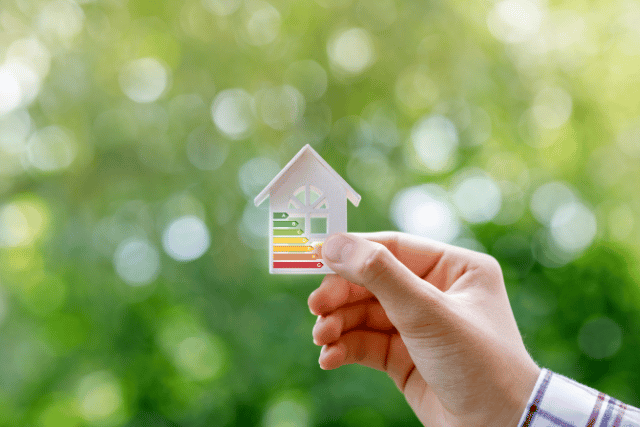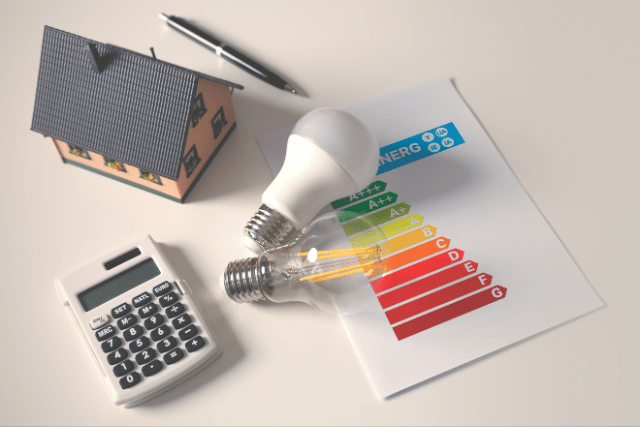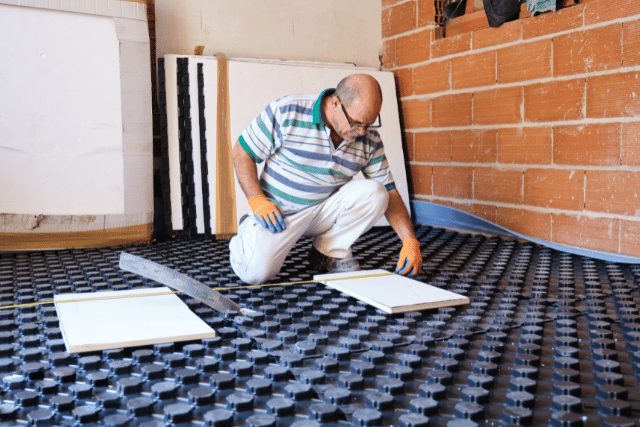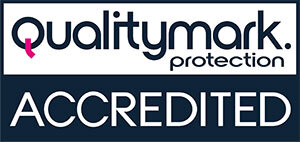What Is Energy Efficiency?
Energy efficiency is a measure of how effectively energy is utilised in a system or process to accomplish a specific task. It’s about getting the most out of the energy we use, minimising waste, and optimising performance. Whether it’s in our homes, businesses, or industries, understanding and improving energy efficiency are crucial steps toward sustainability and resource conservation.
The goal is to make systems and processes more energy efficient as it is a cost-effective way to combat climate change and to reduce energy costs for consumers.

How Many Letters In Energy Efficiency?
The energy efficiency ratings run from A+++ to D, with A+++ being the best and D being the worst. These ratings are defined by the EU for each type of appliance that has different tests run to meet a certain criterion.
What Is An EPC?
An Energy Performance Certificate (EPC) serves as a document offering insights into a building’s energy efficiency. Primarily utilised for residential or commercial properties, it aims to aid property owners, tenants, and prospective buyers in comprehending the energy performance and potential associated costs.
The efficiency rating is denoted on a scale ranging from A to G, with A signifying the highest efficiency and G indicating the lowest. This method can also be referred to for appliances. Energy efficiency labels indicate the energy efficiency of an appliance. This ranges from A+++ to D, A being the most energy efficient and D being the worst.
What Is The Equation For Calculating Efficiency From Energy?
This formula compares the useful energy obtained from a system or device to the total energy input it receives. The result is expressed as a percentage, indicating how effectively the energy is being converted into the desired output.
How Energy Efficient Is My Home?
Assessing the energy efficiency of your home involves a comprehensive evaluation of various factors, including insulation, appliances and lighting. Conducting a home energy audit is a practical approach.
This involves checking for drafts, inspecting insulation, and examining energy bills. Online tools and professional energy assessors can also provide insights into your home’s overall energy efficiency.
How To Get An EPC?
To get an energy performance certificate, you can reach out to us at Energy Efficient You. We are certified energy assessors that are accredited to carry out EPC assessments across the UK.
Energy performance certificates are an essential part of applying for government grants such as boiler grants and insulation grants to improve the energy efficiency of your home.
This is because the energy rating of your property needs to be either E, F, or G to qualify for a heating grant.

How To Improve Energy Efficiency Rating?
Here are our suggestions to improve your energy efficiency rating:
- Insulation Upgrade: Proper insulation reduces heat loss and conserves energy.
- Get energy efficient appliances: Look at energy star ratings of appliances before purchasing to minimise electricity consumption.
- Upgrade windows and doors: Energy efficient windows and doors prevent drafts and keep in the warm temperatures.
How To Make House More Energy Efficient
Making your house more energy efficient involves a combination of upgrades and healthy habits, here are our tips to make your home more energy efficient:
Seal any gaps in brickwork, windows or doors: Identify and seal any gaps or leaks that may let heated air escape.
Smart Energy Management: Invest in smart home technology to monitor and control energy usage effectively.
Renewable energy sources: Consider solar panels or other renewable energy sources to generate sustainable power.
By understanding energy efficiency, calculating it accurately, and implementing practical measures, we contribute not only to cost savings but also to a more sustainable and eco-friendly future. It’s a journey that involves small, consistent steps toward responsible energy consumption and a greener, more efficient world.
Check Eligibility For A Grant
Once you have filled out the form, a member of our team will be in touch with you to discuss the next steps.
Government Backed Scheme Frequently Asked Questions
Frequently Asked Questions
- Instant Heating: Boiling water taps offer boiling hot water on demand, which can be more efficient than a kettle. This is because it saves both time and energy.
- Temperature control: Boiling water taps often allow a specific temperature to be set for the water. This makes it more energy efficient by saving time getting water to the desired temperature.
Before choosing a boiling water tap, it’s advisable to check the product’s energy efficiency rating, if available, and consider the potential energy savings compared to conventional methods. Regular maintenance and proper usage, such as avoiding excessive heating beyond the required temperature, can also contribute to the overall energy efficiency of boiling water taps.
Oil radiators are known to retain heat even after being switched off. This means that they can continue to provide heat/warmth without using additional energy. However, the heat up time may be longer compared to other types of heaters, which questions its energy efficiency.
Many oil radiators are equipped with a thermostat and temperature control features such as a main system or dial. This allows users to set the desired temperature which can be more energy efficient than guessing the temperature.
Most modern radiators come with safety features such as overheat protection and switches. This improves energy efficiency by preventing wasteful energy consumption in case of malfunctions.


